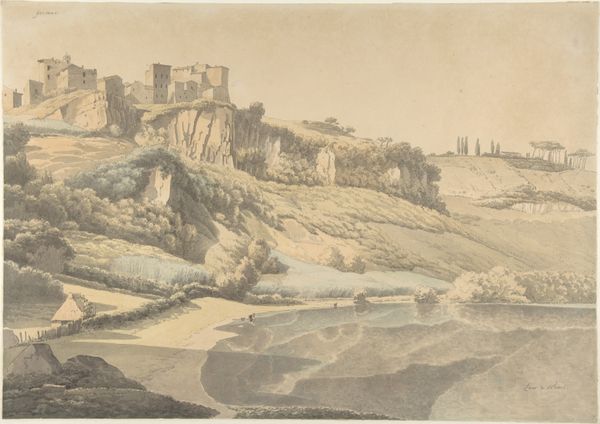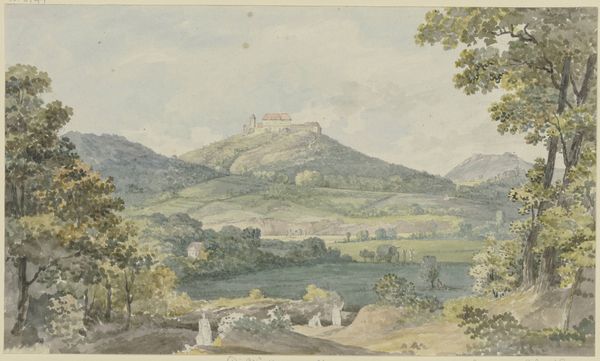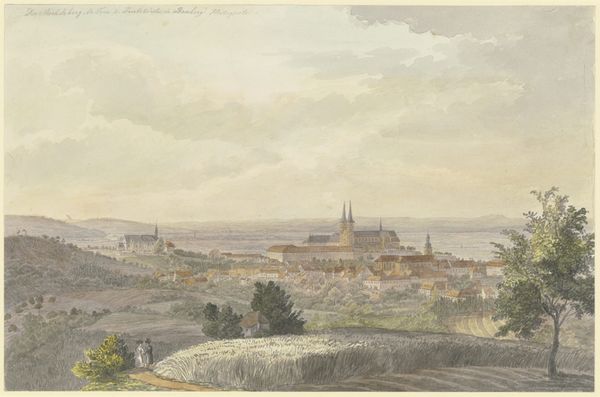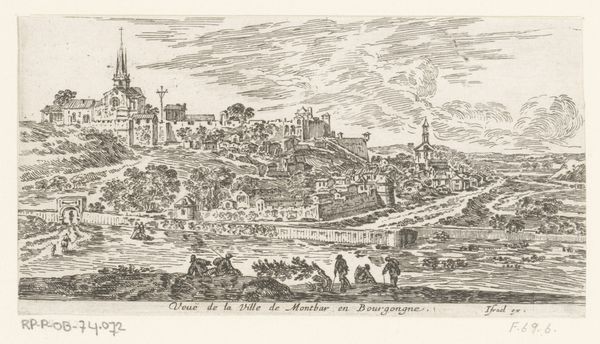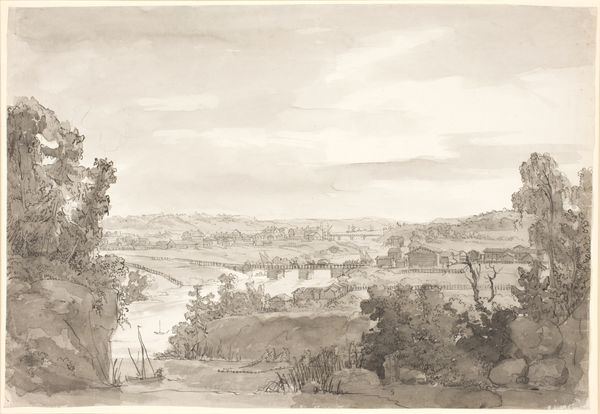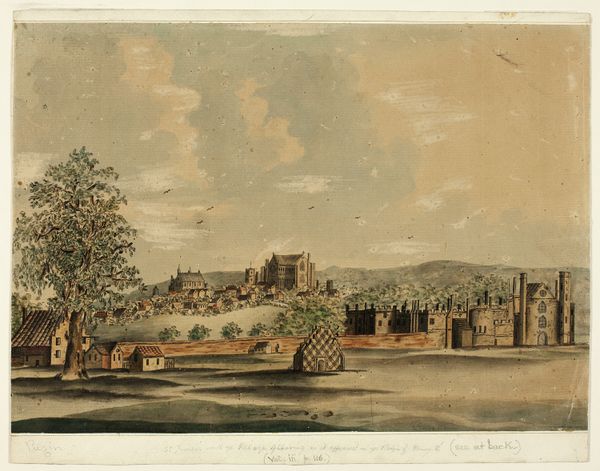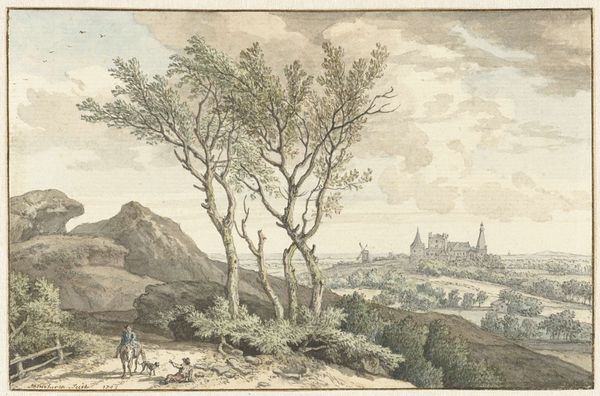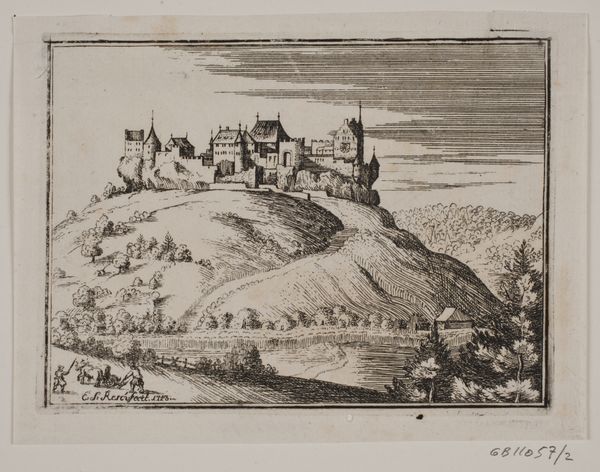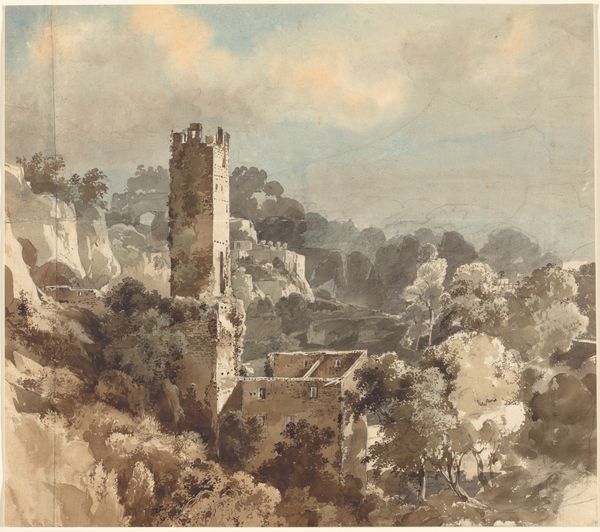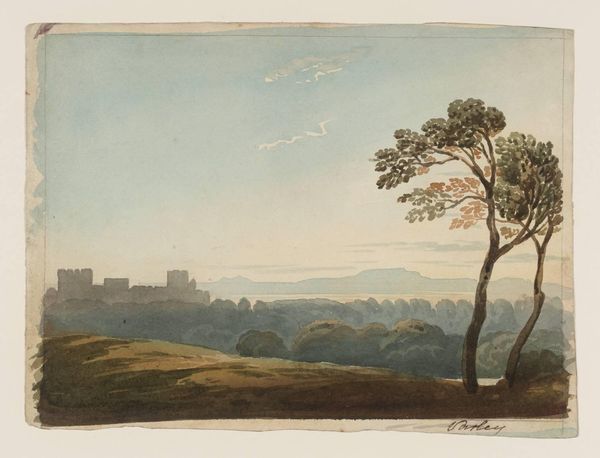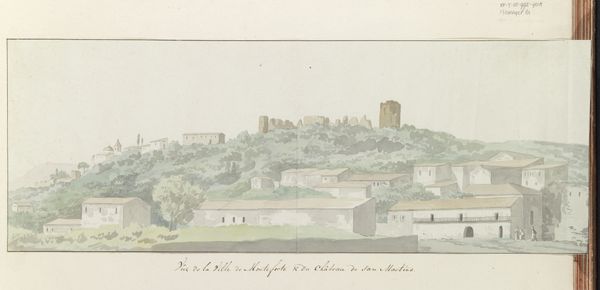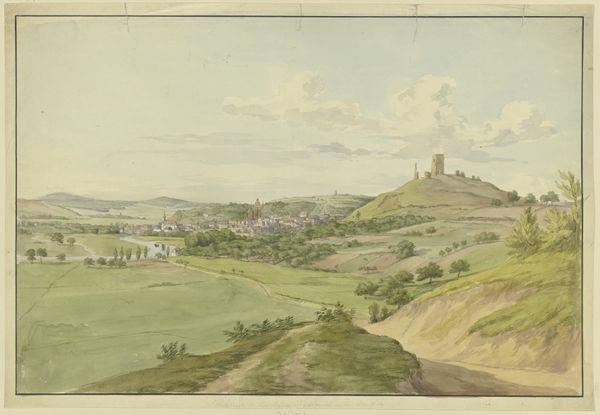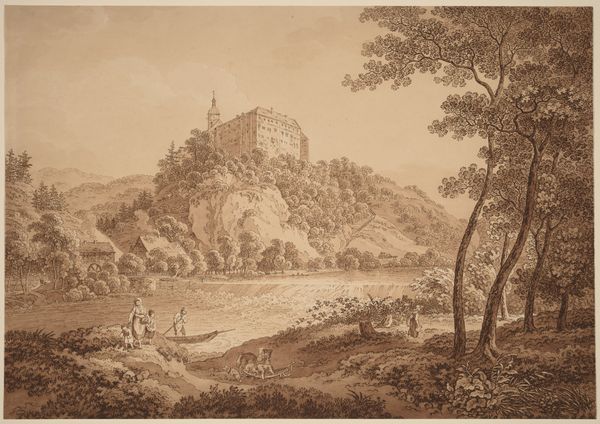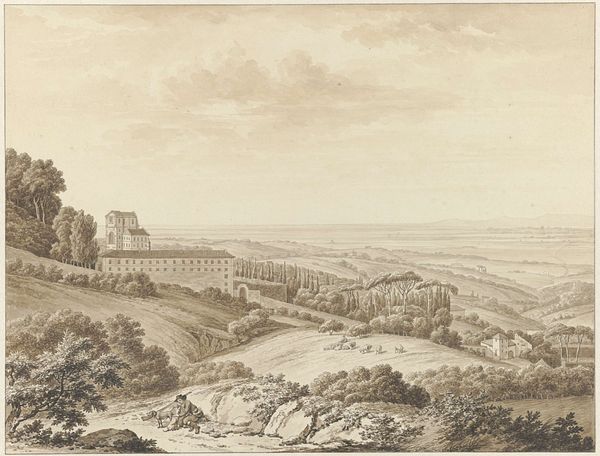
Dimensions: height 302 mm, width 371 mm
Copyright: Rijks Museum: Open Domain
Daniël Dupré made this watercolor of Siena sometime in the late 18th or early 19th century. It's a picturesque scene, showing the city atop a hill, but the image is more than just a pretty picture. It's a window into the social and economic realities of the time. Dupré was Dutch, and Northern European artists had been traveling to Italy for centuries, drawn to its classical ruins and Renaissance art. These images were made for a growing art market back home, for wealthy patrons eager to display their cosmopolitan tastes. Notice the peasant in the foreground, leading two donkeys laden with firewood. It’s a reminder that while Siena was a popular tourist destination, it was also a working city, with a large population of poor people struggling to make a living. This image reflects the complex social structures of the time. Art historians rely on travel accounts, economic data, and other sources to understand the full context of works like this. The meaning of art always depends on its social and institutional context.
Comments
No comments
Be the first to comment and join the conversation on the ultimate creative platform.
